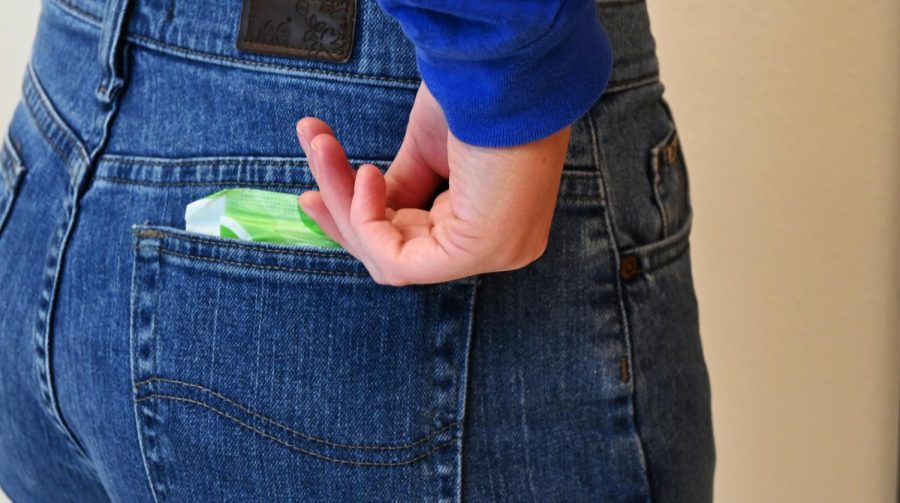SHHHH…
Students at West share their unique experiences with the stigmas and education surrounding periods.
There are many stigmas surrounding periods and students discuss what they believe should be done to break these.
It’s okay to say it. Periods. The natural part of life that occurs when the lining of tissue around the uterus thickens in case there is a fertilized egg that needs help growing every month and if no egg is fertilized, this material is shed and leaves the body through the vagina. Despite around half of the population having them at some point in their life, periods are still stigmatized due to a lack of education, making them feel like something that must be taken care of covertly.
According to HealthLine, the majority of people begin their period between ages 11 to 14. The first time students are taught about periods is 4th grade, where most students are split up based on gender. Charlotte Delowery ’25 believes this difference in education can cause discomfort to arise when talking about periods.
“It’s really hard for [people without periods] to understand what it really is and the science behind it,” Delowery said. “I think it was more the absence of learning.”
After what some students, such as Joseph Alarape ’23, considered to be insufficient discussions about periods in elementary school marked by giggling students and awkward teachers, the next time the topic arose was in 7th grade personal development. However, Alarape feels the knowledge provided was not sufficient and was not taught in a way where students could actually learn.
“If I compare my experience from what I know now to what I knew then, I learned more from the internet than I learned from that class,” Alarape said. “That’s because of the way that they [teach] the curriculum and how [unengaging] it is. It just puts a lot of people off and they usually take it as a joke.”
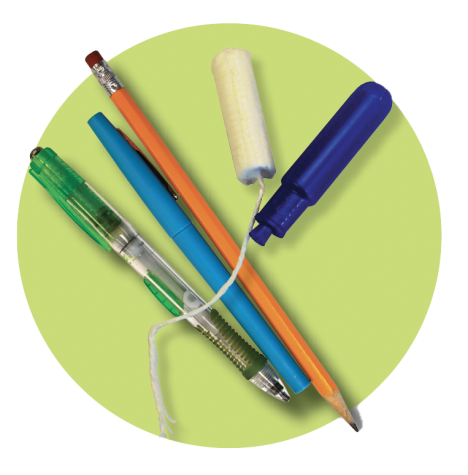
One area where school education has lacked adequate coverage is how menstruation has many unique impacts on different groups of people, including in the way some people practice their religion. In Islam, people who menstruate must take hygenic precautions before performing certain ritual prayers, which menstruation can disrupt.
“You can’t pray because you have to wash yourself. There can’t be blood on you, [while praying], whether that’s from surgery or a wound,” said Hayate Mustafa ’23. “Obviously when you’re on your period you’re constantly bleeding.”
Receiving education about menstruation around the world is also important to understand that not all countries have the same access to the same resources as the U.S. Mustafa acknowledges this gap in assets and the ways it can affect how others go about their lives.
“A lot of developing countries have cultures in which people who are on their periods are isolated,” Mustafa said. “They don’t have the resources. They miss school because they don’t have pads, or they don’t have tampons or anything of that nature.”
This isolation is not only due to lack of resources but is also a result of menstrual exile, which is when people with periods are moved from their homes into secluded shelters or livestock sheds during menstruation. This tradition, which is rooted in stigmas of periods, has been retained over time.
Due to the poor and often unsanitary conditions, efforts have been made to make menstrual shelters more safe and comfortable through the non-profit organization Kherwadi Social Welfare Association. Improved shelters have beds, running water, a first-aid kit and an indoor toilet. However, many still remain unsanitary, and while these huts make isolation more liveable, they do not solve the problem of being separated.
Developing countries also lack access to education about periods according to BMC Women’s Health, which has contributed to these practices and stigmas.
“I think a lot of people hold on to their culture so that’s been hard to change [in the past],” Mustafa said. “I think that’s what’s causing the stigmas to kind of break down … now that [the world is] more closely connected than they were previously, that’s what’s causing people to have a shift of opinion.”
When discussing menstruation and breaking down stigmas, Renee Gould ’22, who identifies as genderfluid, believes it’s important to not brand periods as a “women’s issue.” This can contribute to many transgender and non-binary people who were assigned female at birth experiencing gender dysphoria, or feeling uneasy due to disagreement between their body and their gender identity. Gould experiences gender dysphoria while on their period.
“I will say now in dealing with the few times I have periods, wearing tampons would be incredibly gender dysphoria triggering for me,” Gould said. “I honestly had never liked them and now I finally understand why.”
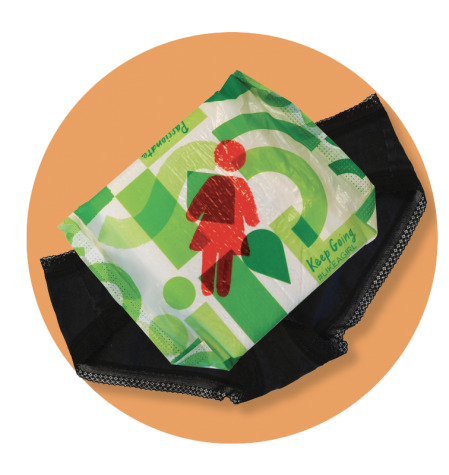
Additionally, the gendered language used to refer to periods, such as how it is “an essential part of womanhood,” as well as the use of hyper-feminine products, can make menstruating feel extremely uncomfortable for transgender and non-binary individuals to experience.
“[Periods] remind me what I was born as and that I can’t really change much about it,” said Wren Copple ’22.
One of the best things Gould feels can be done to help minimize these feelings is to start recognizing periods as something normal that affects people of all identities, which starts with education. University of Iowa Health Care LGBTQ Clinics provide counseling services and access to resources such as hormone therapy, gynecological exams and routine physical exams.
“We should do a ton more outreach for queer people and women and other people who menstruate [to] help remove the stigma around menstruation as well as around other people who are not necessarily females menstruating,” Gould said. “A lot of this has to be done in health class, because it is a wide reaching program that will see a lot of people and will essentially be the best way to get it out there in a meaningful, impactful way.”
Mustafa believes it is important to remember that periods are just a natural part of life.
“You shouldn’t feel ashamed for something that’s natural, something that you are going through, your friends are going through, your mother and your grandmother and great grandmother have been through,” Mustafa said.
According to Alarape, education is crucial to removing the stigmas surrounding periods.
“I think education is a key part of [removing stigmas],” Alarape said. “With education comes interest, with interest comes action and with action comes change, so it’s more of a domino effect [that starts] with education.”
Your donation will support the student journalists of West High School. Your contribution will allow us to purchase Scholarship Yearbooks, newsroom equipment and cover our annual website hosting costs.
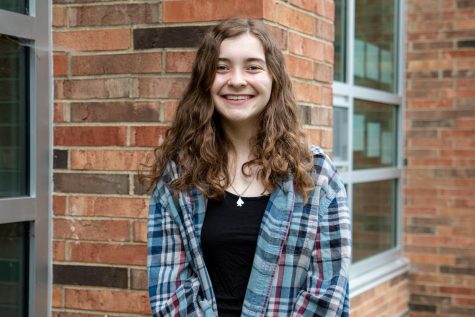
(they/them) Katherine Shoppa is a senior in high school and this is their third year on staff. They are the Co-Editor-in-Chief of the...
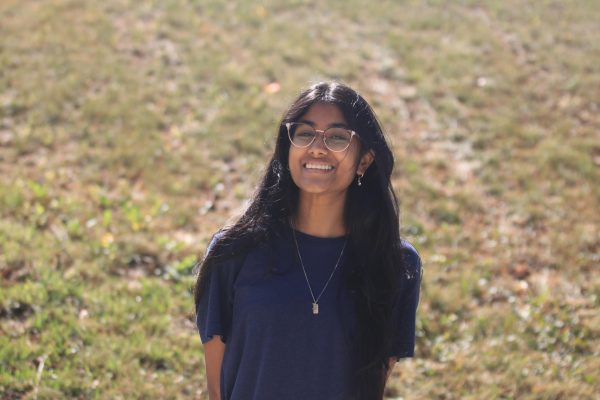
(she/her) Kamakshee Kuchhal is a senior at West High School and is super excited for her third (and last) year on West Side Story Print Staff. Besides...
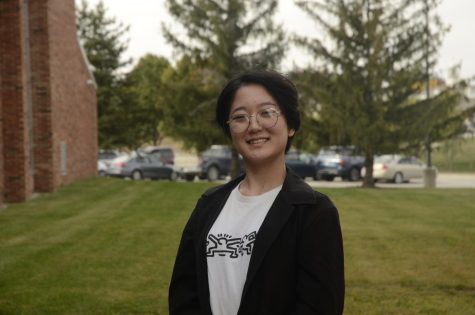
(she/they) Sachiko is a senior at West, and this will be their 3rd year on staff. She is a design editor and photographer for the print publication. In...


